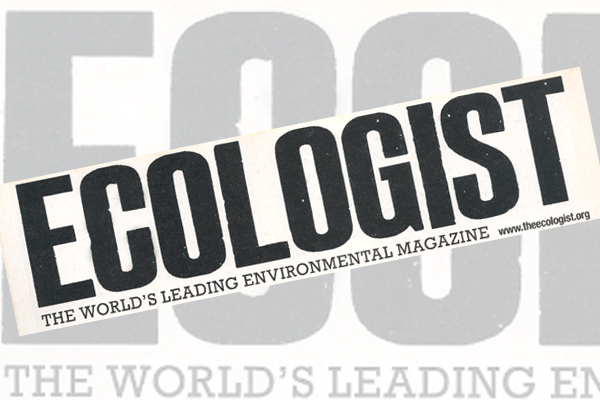Letter: The Link Between Junk Food and Mental Health

Pat Thomas, Health Editor of the Ecologist, responds to Felicity Lawrence’s article in the Guardian on the link between junk food and mental health.
Sir,
Felicity Lawrence’s piece (Omega-3, junk food and the link between violence and what we eat, Tuesday October 17, 2006) is at once encouraging and discouraging.
Encouraging because it returns our focus to the most fundamental aspect of human health and well being – food. Discouraging because of its claim that this research is new and because of its tendency to focus on single nutrients and supplements as an answer.
In March 2006 the Ecologist magazine devoted 8 pages to the question of prison vs nutrition highlighting research dating back to the 1970s showing that what we eat fundamentally influences how we behave. This investigation dovetailed with two major reports from the Mental Health Foundation and Sustain highlighting the link between mental illness and a nutritionally poor diet. This isn’t flavour of the month research, it is fact and we ignore it at our peril.
Our brains are changing in size as well as function and substantial evidence points to diets that are, in part, deficient in the proper mixture of essential fats.
Supplements may be useful but there are problems with this approach. The richest and most easily assimilable sources of omega-3 fatty acids are fish oils but, after years of using our oceans as a waste dump, fish oil supplements are regularly found to be contaminated with mercury and other industrial pollutants. So while they may provide valuable short-term help, pills may also have more worrying longer-term health implications.
Also as long as we cling to the idea of the quick- or techno-fix – so beautifully embodied in the ‘take a pill and make it better’ philosophy of modern life – we will be unable and unwilling to address the real problems with our food supply: too many nutrient depleting fertilisers and pesticides, animals fed on artificial diets (grass fed beef, for instance, is much higher in omega-3 than conventionally reared beef) an over reliance on high-fat, high-sugar, over-processed, low quality convenience foods and a couple of generations of children who don’t know what the origins of a chop or a chip or loaf of bread are – and worse don’t care.
As with many aspects of human development timing is everything. Supporting proper brain development in the womb and in infancy is crucial to adult health and behaviour. Thus in addition to feeding prisoners well, shouldn’t we make feeding pregnant women well a priority and promote, in a much more proactive way, the fact that ALL women should breastfeed – since it is human breastmilk which provides the substantial energy and nutrition necessary for the growing human brain.
The problem is global in nature – the solutions need to have similar breadth of vision.
Pat Thomas
Health Editor
The Ecologist
This letter was not published by the Guardian. It appeared in the Ecologist website in October 2006.












